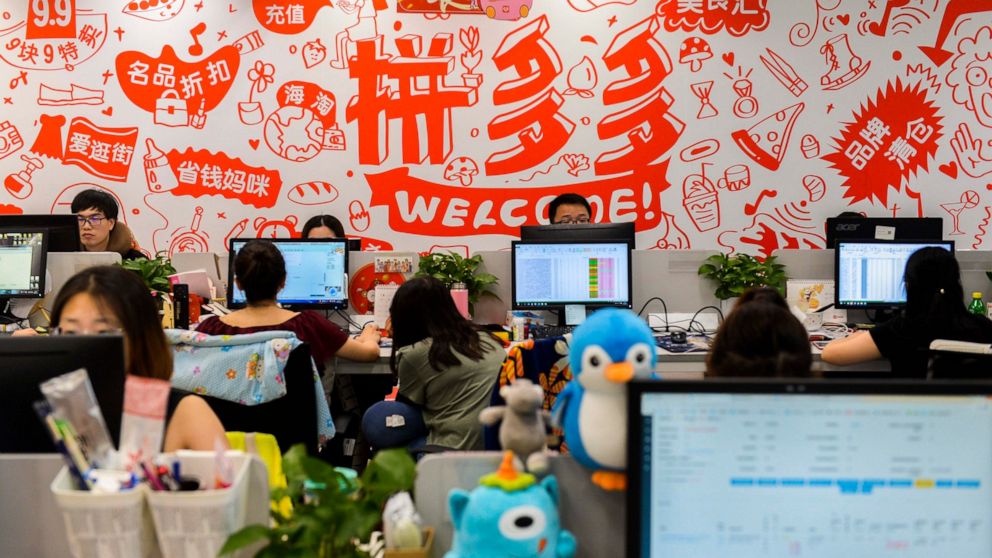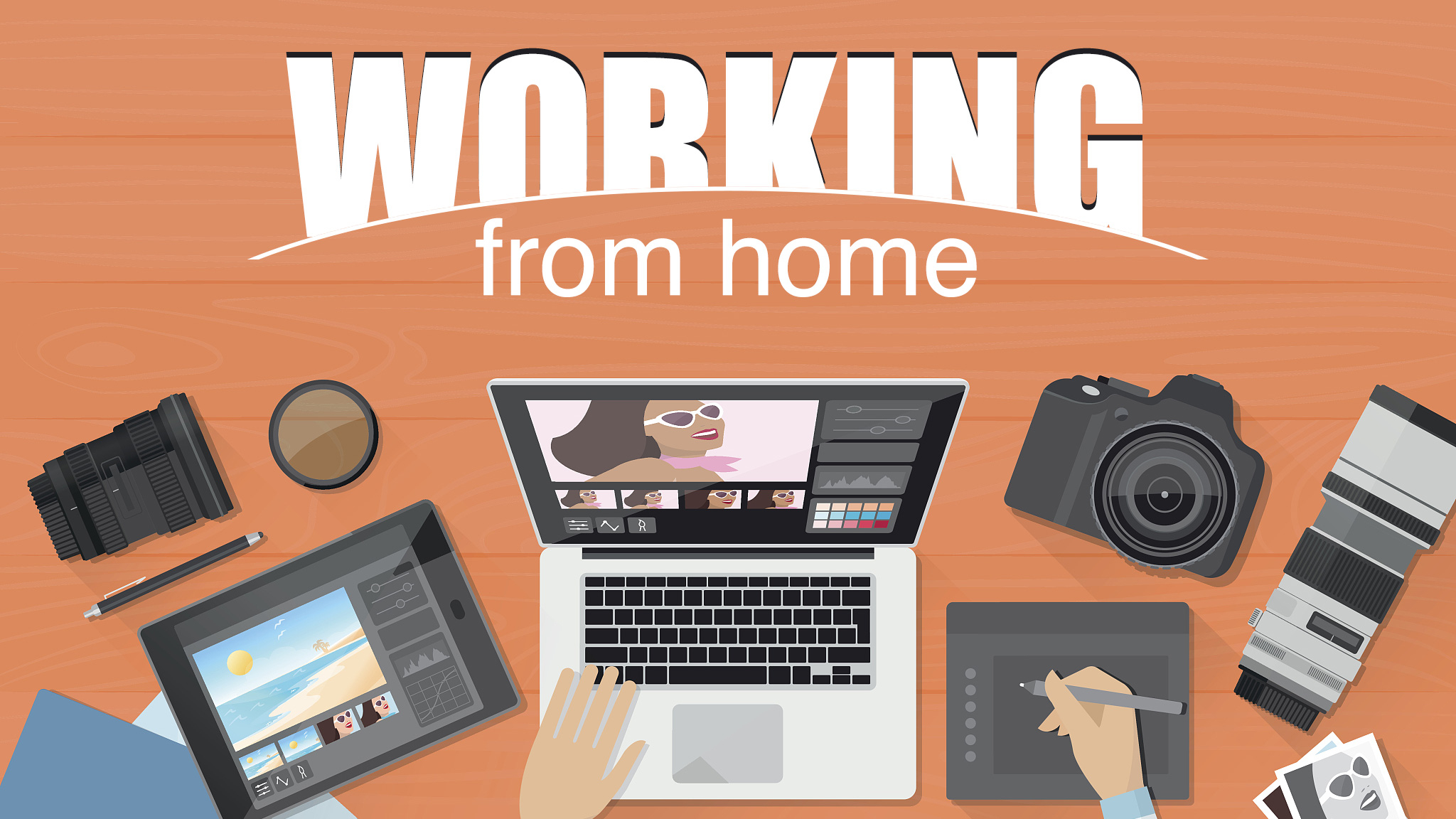The past two years have been hard – many are still unable to travel around with COVID-19 restrictions still in place. Yet it has not stopped Zheng Zheng from discovering different coffee shops on a daily basis.
She is not one of those internet influencers who check out different fancy cafes to make an income. Like millions who are taking on work-from-home positions, the project manager of an internet company sees it as a way to escape her cramped apartment and remain productive.
"As long as there's Wi-Fi, I can literally work anywhere," Zheng told CGTN.
Many Silicon Valley executives have been rooting for the rise of remote working since 2020. Last May, Twitter announced its permanent work-from-home plans, calling the flexibility "the fourth industrial revolution."
"The future of work is offering employees more optionality," said Twitter human resources chief Jennifer Christie.
Zheng agreed. "[Remote working] gives me great flexibility. I could better assign my time, rather than wasting it on things like washing up or taking the subway to the office," she said during a Taihe Institute forum on the topic.
"Another great thing is, you can have different sources of income," the part-time designer and stylist added.
Before returning home to China last January, Zheng had worked as a professional designer and stylist in Los Angeles for years.
Breaking up with the office
"But still, I believe remote working will never completely replace the traditional means of working," she said after sharing all the pros.
One disadvantage she pointed out is missing out on social interactions with your colleagues, and another is the extended working hours.
"Sometimes, you will need to work 24/7 if you have international clients from both Hangzhou and the UK like I do. You answer their questions when you see them; it doesn't matter what time it is."
While flexible schedules have some obvious benefits, with research showing it generally increases employee happiness and productivity, making the break with the office is certainly more than just missing out on saying hi to your fellow coworkers.
"Face-to-face interaction is required to facilitate collaboration, build relationships, solve complex challenges and generate ideas. Continuous remote work extends the workday, diffuses work-life boundaries and reduces mental well-being," Indranil Roy, executive director of Deloitte's Human Capital Department, said in an interview with the BBC.

Employees on duty at the headquarters of Pinduoduo, an e-commerce platform in Shanghai, east China, July 25, 2018. /AP
Employees on duty at the headquarters of Pinduoduo, an e-commerce platform in Shanghai, east China, July 25, 2018. /AP
In a University of Chicago study, employees were found to work longer hours at home for the same task, as focused time was broken up by domestic distractions like childcare and online meetings.
Robin Dunbar, emeritus professor of Experimental Psychology at the University of Oxford, told the BBC that he believes remote working is overhyped and certainly won't last long.
"Without face-to-face engagement and those casual meetings round the coffee machine, the 'flow' that makes things work and work fast will be missing. Work groups quickly lose focus, and the sense of belonging – and of commitment to the organization and its aims and objectives – is very quickly lost," the BBC quoted Dunbar as saying.
"That's why occasionally, I'd still need to be there, say in the factory, and check out the product's quality there," Zheng told CGTN.
Her work mode is what is now called "hybrid working," which consists of a mixture of home and office work. As time passed and the first wave of coronavirus variants abated only to be followed by the second, companies started to shift to a more hybrid work model, which is expected to give the best of both worlds.
Many other urban dwellers share the same sentiment, hoping to get a balance between staying around with colleagues and the efficiencies gained by working remotely.
According to a report released by professional networking site LinkedIn this September, 57 percent of the over 1,000 participants in China said they prefer the hybrid model, while 11 percent would choose work from home completely.
The same trend has also been seen in the world's biggest economy. In a survey conducted by Stanford University in May 2020, 55 percent of U.S. workers said they want a mixture of onsite and remote working.

An illustration of an employee working from home. /CGTN
An illustration of an employee working from home. /CGTN
"This has worked very well so far, with many enjoying seeing everyone again, the flexibility, and it is much cheaper than a physical office that we wouldn't be using properly now anyway," the CEO of search engine optimization agency NOVOS Antonio Wedral told the BBC.
The new working model can also encourage a more diverse range of people to join the workforce "by making use of the skills of people who were otherwise not working or not working very much," Professor Steven Davis of the University of Chicago told the Strait Times. That would put those living outside major cities or mothers on to the labor market list.
Cofounder of FuturistCircle, an organization that connects global innovation leaders, Zheng Keji predicts that the future of the world of work may be changed forever, from working efficiently to working freely and now to working "hybridly."
"Against the backdrop of technologies like artificial intelligence and 5G, and all the social influence including society involution and the pandemic, more people will be prone to a distributed and autonomous way of working in the future," he told people at a forum hosted by the Taihe Institute, calling the change "fundamental."
"We are also seeing a trend called 'workcation,' working while enjoying the vacation," he added. "Apart from the travel time, they save up a chunk of time for their work or social needs. And that is also one of the trends of the future."

